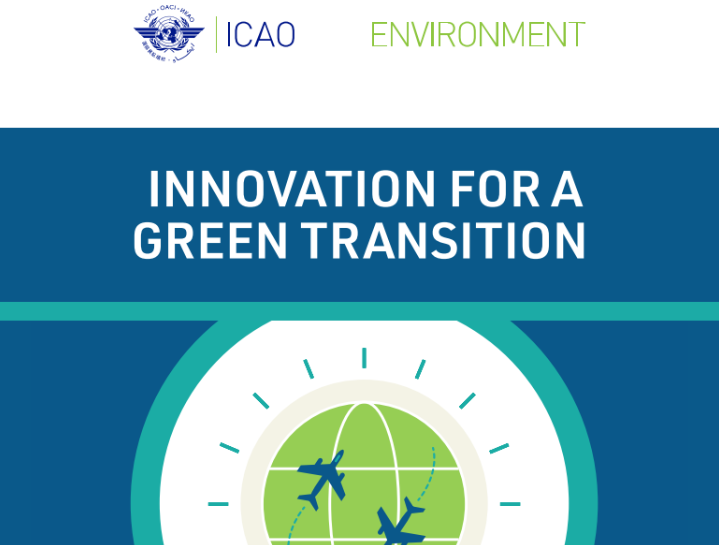
In August 2022, ICAO released the 2022 Environmental Report called “Innovation for a green transition”. The text of the report can be found on the official ICAO website.
ICAO Environmental Reports are issued every three years and highlight the progress made in the organization's key areas of environmental protection during the reporting period.
The 2022 report contains materials on issues such as: aviation and environmental prospects; aircraft noise, emissions of harmful substances in the airport area, aviation technologies, sustainably produced aviation fuels; Carbon Offsetting and Reduction Scheme for International Aviation (CORSIA); climate change adaptation and resilience; biodiversity; action plans of states to reduce CO2 emissions, etc.
In the section "Biodiversity" a joint article "Aviation extinguishing natural fires" by the Deputy Director of A.N. Severtsov Institute of Ecology and Evolution RAS Konstantin Gongalsky and the representative of the Russian Federation in the ICAO Committee of Aviation Environmental Protection (CAEP), Artur Mirzoyan, head of the sector of the P.I. Baranov Central Institute of Aviation Motors (part of the National Research Center "N.E. Zhukovsky Institute").
Every year, millions of hectares of forests suffer from natural fires, endangering people's lives, as well as destroying flora and fauna. According to the global database, the average gross CO2 emissions from global wildfires between 1997 and 2017 each year accounted for nearly ¼ of total annual fossil fuel emissions (7.7 Gt CO2e). Increasing the absorptive capacity of forests and reducing emissions from wildfires could be one of the critical solutions to reduce global CO2 emissions.
As a member of the Paris Climate Agreement, Russia has assumed a number of voluntary commitments to reduce greenhouse gas emissions, which are recorded in it as an Intended Nationally Determined Contribution (INDC) of the Russian Federation. They note that "a long-term goal of limiting anthropogenic greenhouse gas emissions in the Russian Federation could be 70-75% of 1990 emissions by 2030, subject to the maximum possible consideration of the absorptive capacity of forests." Russia places the main stake in its climate doctrine on the capture of greenhouse gases by forest resources.
Russia possesses one of the world's best, diverse and well-equipped firefighting aviation equipment. Multi-purpose aircraft of the An-2/3 family, the Be-200ChS amphibious aircraft, the Il-76 transport aircraft, the Mi-8 and Ka-32A utility helicopters, as well as the Mi-26T heavy multi-purpose helicopters are all successfully used for this purpose.
The article presents the successful experience of Russia in the field of aviation firefighting in the country and abroad: in Armenia, the countries of the Balkan Peninsula, Israel, Indonesia, Turkey, Portugal, Serbia, Chile, etc.
The main advantages of using aviation for the integrated management of wildfires, including participation in planning, prevention, early detection, extinguishing and reducing the negative consequences of wildfires, are highlighted. A separate highlight was placed on the important role of ICAO in the development of international standards for aviation firefighting, taking into account the national legal order, and the formation of a legal framework for the use of international aviation in the management of natural fires. The article supports the ICAO initiative to organize an international dialogue in the field of aerial firefighting, put forward in response to the Russian proposal to create a distributed international aviation fire service under the auspices of ICAO/UN.
In the face of unprecedented Western sanctions against Russia, climate commitments have not lost their significance. Their implementation in modern conditions will be even more within the priority of unconditional observance of the national interests of Russia, its sustainable independent development.
The Committee on Aviation Environmental Protection (CAEP) is a Technical Committee of the Council of ICAO. It was founded in 1983 and controls the impact of international civil aviation on the environment by developing and adopting relevant environmental standards.
Related materials:
Aviaport: "The ICAO environmental report for 2019-2022 includes proposals from Russian
experts"
